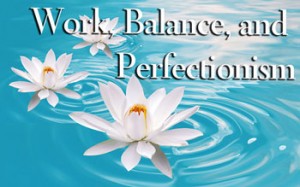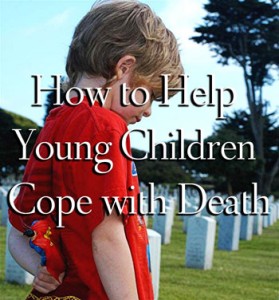Coping with Anxiety by Learning the Secret Ingredient to Anxiety
Coping with anxiety can be tough, especially if you aren’t quite sure what the anxiety is all about. Most people think that coping with anxiety is about making yourself feel more relaxed, or trying not to worry about certain things. But, anxiety can take many forms, a lot of which don’t seem like worry at all. In this article we’re going to approach coping with anxiety from a different perspective that helps you recognize it in many forms and address the root.
What Exactly is Anxiety?
The root of anxiety is something called Experiential Avoidance. This simply means trying not to feel pain or discomfort. Our brain tells us that we can avoid feeling like crap if we try to control more of the situation. Ask yourself if any of the following sounds familiar:
- You don’t want to feel anxious about being late, so you set your alarm for extra early. You start to feel anxious about missing your alarm, and to get rid of that feeling you check your alarm clock. That helps, a bit, but the anxiety hasn’t gone away, so you do more to try to avoid those feelings by also setting your phone. Then, you ask your partner to make sure you’re up at a certain time. You think you are avoiding being late, but your actions are really helping you feel less anxious about thing in the moment.
- You don’t want to get into a car accident because that scares you, so you are a very careful driver. Being careful hasn’t gotten rid of the fear that you are going to have an accident, so you up your game and stop driving on busy roads. This helps for a while, but then you figure you should stop driving on the highway. It’s the feeling that you are afraid of getting into an accident that you are trying to get rid of.
- You had a fight with your partner. You replay the fight in your head over and over again, and your brain tells you that you are processing it. But, really, what you are doing is called rumination. You are trying to analyze what you could have said differently, what you will say if that comes up again, what you wish your partner would have said or not said. You don’t like the way the fight went, and that causes you to worry that the relationship is in trouble. You don’t like feeling like your relationship is in trouble, and you don’t like feeling like you aren’t tackling the issue in the best way because you’re unprepared for the argument. To avoid that feeling, your brain replays this scene over and over, and it’s all in an effort to feel less anxious in the moment about the relationship.
This connection may not seem super clear, but if you put some thought into it you will see that in every situation where you are coping with anxiety, you can ask yourself, “What is it that I am trying to control? To not feel? To avoid?” Most of the time the answer makes perfect sense. I’m trying not to feel anxious, of course! I’m trying to avoid problems, duh! I’m trying to do things correctly so that I can feel no regrets or failure! These are understandable wishes, but there’s one catch:
The feeling of anxiety is a natural byproduct of doing things. Of living. There isn’t a way to avoid it. Coping with anxiety literally means making room for a bit of anxiety to ride along with you while you do life.
When we get caught up in the habitual way that we try to control everything around us so that we never feel anxious (or stressed, unprepared, regretful, shame, whatever), then we are actually feeding a loop where we never quite quench our thirst to be free from anxiety.
How Anxiety Hijacks Us
Oftentimes, we avoid doing things that are important to us because of what is getting in the way. Do an experiment: Take a problem that you have, whatever it is. Now, think of what you’d like to be able to do about that in a perfect world. Now, ask yourself what stops you from doing that. If the answer is another problem, ask yourself the same questions. Eventually, you will get down to what thoughts, feelings, memories, sensations, (any private, internal experience) that you are avoiding having.
It looks like this:
“I have a problem in my relationship. I would like to be able to talk it out with my partner, but I can’t because we’ll get into a fight. I don’t want to get into a fight because I don’t want us to be upset at each other. I don’t want us to be upset at each other because I worry that we won’t be able to get over it. I don’t want to be in a situation that we can’t get over because that might break us up. I don’t want us to break up because I love my partner and I don’t want to lose them. I don’t want to lose them because I would be alone. So, I avoid talking about our issues in this relationship because I fear that they will leave me and I’ll be alone.”
In this example, the avoidance of feeling afraid that you’ll break up is the issue. It results in you not actually trying to fix anything in the relationship, which takes you further toward breaking up. If you were able to see that the fear of feeling this way blocks you, you could experience that fear and still do what’s important for the relationship to survive and thrive. (By the way, this fear is normal, and hey- there are ways to talk about that with your partner.) There are also ways to tell if the discomfort in your relationship is a symptom of being on a good path or not. And if you are avoiding relationship conflict, here’s a good article on the pitfalls of that approach.
Here are some other examples of experiential avoidance- see if you have ever done any of these things:
- Procrastinating
- Avoiding things that require too much effort or that make you feel like a failure – like working out, hobbies, etc.
- Letting opportunities go to avoid fears of failure or change.
- Being self-destructive to avoid emotional pain (drinking to avoid feeling anger, smoking marijuana to avoid feeling bored).
Notice anything interesting? The problem is not the uncomfortable internal experiences you have, it’s how you choose to approach them. Waiting to feel better in order to make your life better is like waiting for an illness to subside before you treat the illness.
Coping with Anxiety
Coping with anxiety gets much easier if you can see that the problem is that you don’t want to feel anything uncomfortable, and you do a lot to avoid it. You tell yourself you are avoiding problems themselves, but really you just don’t want to feel the things that come along with life. Recognizing what you are avoiding helps coping with anxiety because it gives you strength to face your issues head on, rather than getting caught in a trap of avoiding negative feelings and creating more issues as a result. If you’d like to explore how therapy can help your coping with anxiety, we’d be happy to have a complimentary half hour consultation with you to explore whether seeing one of our individual therapists for depression or anxiety in Denver can help you.
My favorite book on the topic of coping with anxiety is the Happiness Trap, and it goes into more detail on how experiential avoidance traps you into a negative cycle of creating more issues rather than actually conquering your anxiety or depression for good.



 As I sit with some rare and (sort of) precious computer time while my toddler naps, I realized that I hadn’t done a blog post or a Facebook or Twitter update in so long! The thought of “catching up” suddenly inspired the perfectionist procrastinator in me to dread it, feel overwhelmed and somewhat lame for letting things go. But this is also a great opportunity to explore what the term “balance” means to me, and why it is that I don’t feel “effective” or “productive” unless I’m all-consumed by a project?
As I sit with some rare and (sort of) precious computer time while my toddler naps, I realized that I hadn’t done a blog post or a Facebook or Twitter update in so long! The thought of “catching up” suddenly inspired the perfectionist procrastinator in me to dread it, feel overwhelmed and somewhat lame for letting things go. But this is also a great opportunity to explore what the term “balance” means to me, and why it is that I don’t feel “effective” or “productive” unless I’m all-consumed by a project? On December 20th, a childhood friend of mine was killed in an accident. Her nine year-old daughter Sarah was orphaned just before Christmas. A tragic and sudden death leaves everyone reeling. Knowing how to help young children cope with death can be difficult given that everyone else is also in crisis. The adults have to function, and the child has to be cared for. Most adults don’t know how to talk to children about death, and don’t know what is and what isn’t normal in the grief process. The subject of children and grief is vast, but this is what you can expect with young children ages 0-9, and how you can help them in their grieving.
On December 20th, a childhood friend of mine was killed in an accident. Her nine year-old daughter Sarah was orphaned just before Christmas. A tragic and sudden death leaves everyone reeling. Knowing how to help young children cope with death can be difficult given that everyone else is also in crisis. The adults have to function, and the child has to be cared for. Most adults don’t know how to talk to children about death, and don’t know what is and what isn’t normal in the grief process. The subject of children and grief is vast, but this is what you can expect with young children ages 0-9, and how you can help them in their grieving. Simple Steps to Create Healthy Relationship Change
Simple Steps to Create Healthy Relationship Change